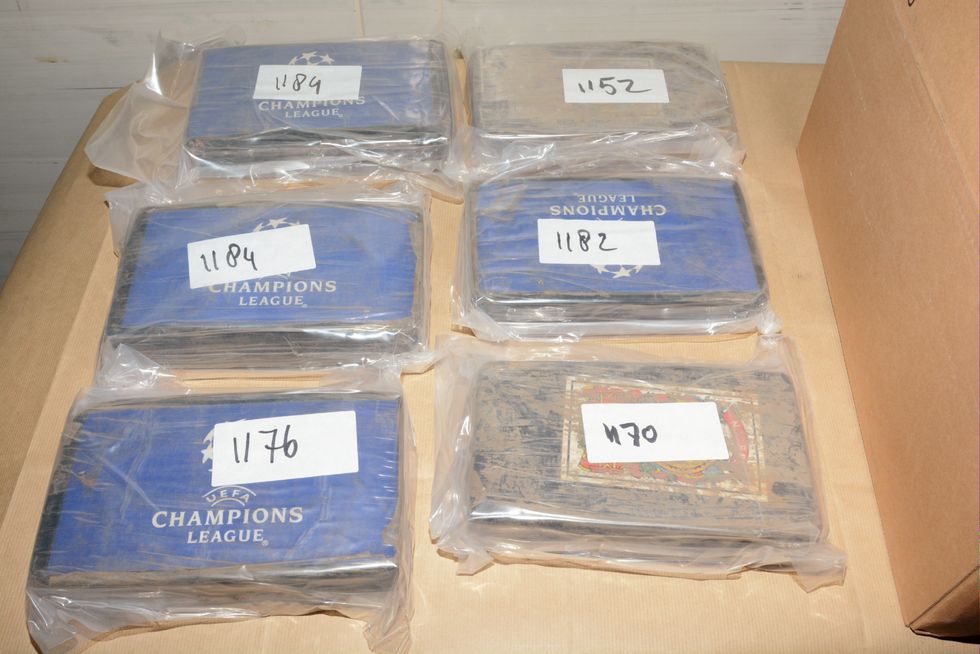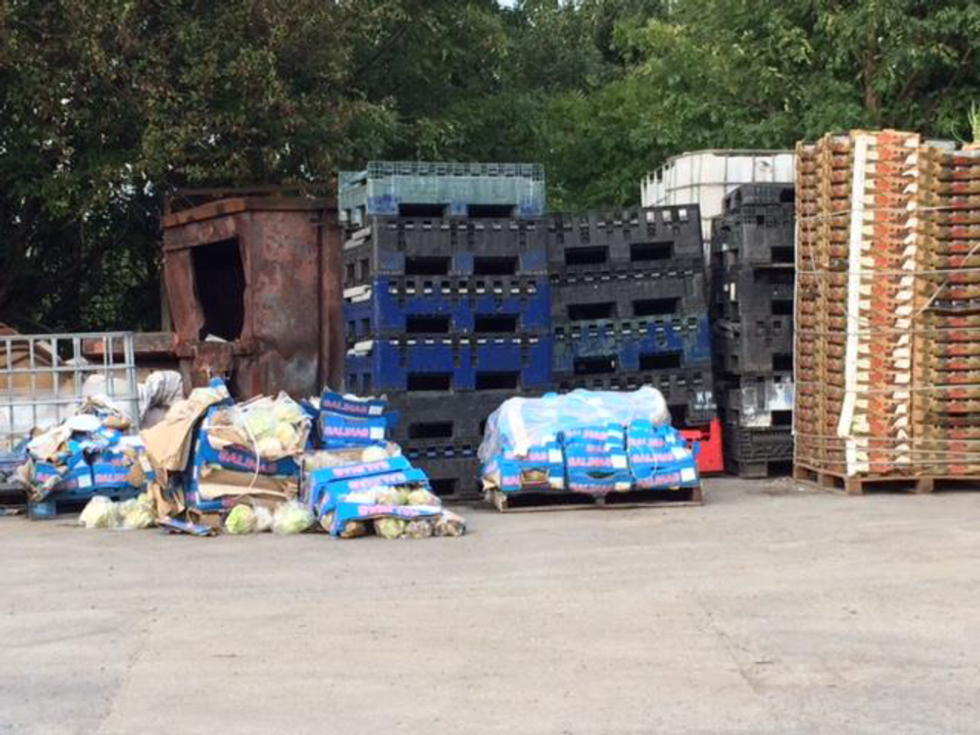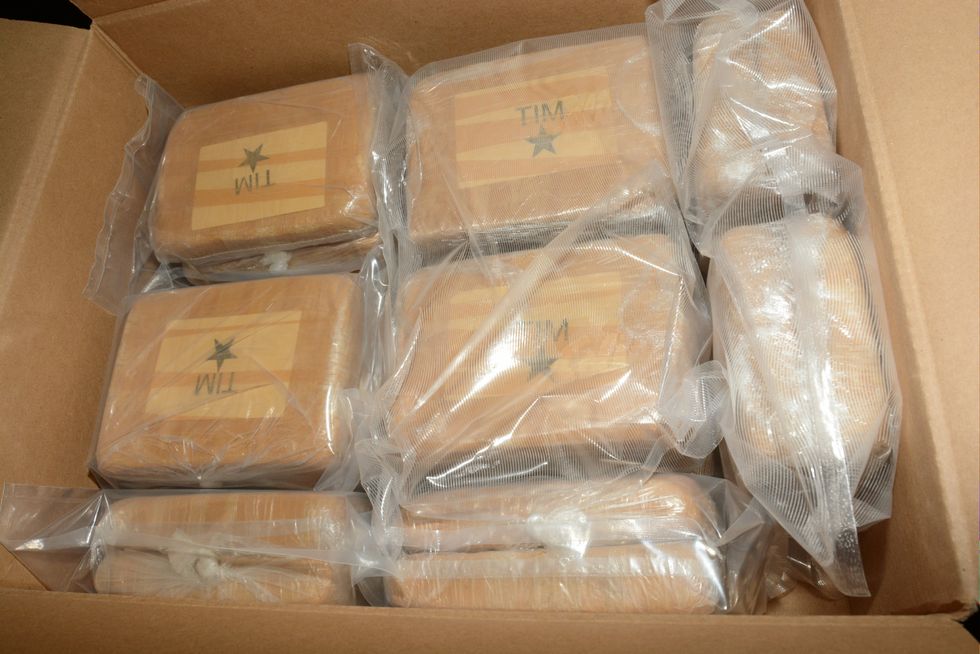Eighteen members of a major organised crime group have been convicted for their part in smuggling billions of pounds worth of illegal drugs into the UK.
The case, the biggest ever drugs investigation in the UK, also resulted in the longest running criminal trial in British legal history.
The convictions in that trial can only now be reported, after the conclusion of a second linked court case.
The organised crime group (OCG) is thought to have smuggled £7billion pounds worth of heroin, cocaine and cannabis into the UK.

The organised crime group (OCG) is thought to have smuggled £7billion pounds worth of heroin, cocaine and cannabis into the UK
GB News
Right across the country, crime gangs were fed drugs from the OCG’s importations.
The National Crime Agency, which led the investigation, believes more than 50 tonnes of drugs – the weight of around 30 family sized cars – was smuggled into the UK.
Two criminal trials were needed to try the defendants. One trial lasted 23 months, a record in England and Wales. The second trial has just concluded after nine months.
The judge who presided over the trials said the drug smuggling operation was “on an industrial and hitherto unprecedented scale”.
Today, at Manchester Crown Court, reporting restrictions were lifted after verdicts in the second trial were reached, and the full details of the NCA’s huge investigation can finally be reported.
Six seizures of drugs, with a street value totalling £40 million, were made between August 2015 and September 2018.
But investigators proved there were at least 240 separate drug importations by the crime group, which went to great lengths to confuse the authorities and avoid justice.
The crime group’s main operation was based in north west England, with accomplices in the Netherlands.
Trial judge Paul Lawton said, if only half the importations contained the same quantity of drugs as the six recovered seizures, it would amount to £3 billion worth of drugs.
Nicknamed the Big Man, the gang’s leader Paul Green, 59, has been jailed for 32 years.
His gang set up a series of front companies and warehouses in England and the Netherlands to try to mask their offending.
To avoid detection, they concealed their drugs in consignments of strong-smelling foodstuffs such as onions, garlic and ginger.
The trial was told the gang bought so many onions, between 40 and 50 tonnes a week, that much of it was left to rot.
“The stench of criminality is overpowering,” prosecuting KC Andrew Thomas told the jury during the trial.
Prosecutors said the OCG exercised a “high degree of criminal tradecraft” to evade the authorities.
Paul Green rented a hotel room near his home in Widnes, Cheshire, so he could use its Wi-Fi without it being traced back to him.
Offenders used encrypted communications, faked documents, changed their names by deed poll and acquired previously legitimate businesses to disguise their illegal importations.
LATEST DEVELOPMENTS:

The trial was told the gang bought so many onions, between 40 and 50 tonnes a week, that much of it was left to rot
GB News
Suppliers and transport firms were often far less suspicious about doing business with an organisation appearing to have an established trading history.
Green created a fake paper trail to smuggle £1.1 million of amphetamine based oil in bottles of cream bought in Belgium.
But a Border Force dog sniffed out the drugs hidden in a van on 29 March 2016.
The offenders used a front company, cloned from a legitimate business in Cornwall, to try to smuggle 8kgs of cocaine worth nearly £1 million into the UK.
Conspirators rented a warehouse in the northern Netherlands and hid the cocaine in four cardboard boxes packed with ginger.
They rented warehouses in Bolton, Wigan and Ormskirk, where deliveries were made.
In September 2016, the plot was foiled when an innocent Dutch haulage driver employed to collect and deliver the consignment became suspicious.
He returned to his depot and called the police who found eight 1kg bricks of cocaine.
A month later, Green’s OCG was trying to smuggle 57kg of amphetamine, worth about £1.1 million, from the Netherlands to the UK.
But Dutch officers had group members under surveillance and were listening to their phone calls.
Russell Leonard, 47, an OCG foot soldier who spoke fluent Dutch, and a man who cannot be named for legal reasons, had the 57kgs in a van and were responsible for its safe keeping en route to the UK.
But Leonard, who was usually responsible for packing the group’s drugs in the Netherlands, and his accomplice went out drinking all night and left the van unguarded in a southern suburb of Amsterdam.
In a recorded conversation, Paul Green told one of them: “If the van’s gone or been grabbed by the police then there’ll be f***ing murders.”
When the duo returned the following morning from their drinking session, they got in the van and drove off but were immediately stopped by Dutch police. Russell Leonard has been jailed for 24 years.
In 2018, after the NCA and Dutch Police began working together, the vast scale of the gang’s offending became clearer.
Joint working led to the seizure of 450kg of cocaine and heroin and two tonnes of cannabis.When Green was arrested, it was clear he had been living a lavish lifestyle.

But a Border Force dog sniffed out the drugs hidden in a van on 29 March 2016
GB News
National Crime Agency investigators recovered almost £10,000 in cash from his home.
His bank statements showed he and his wife spent more than £26,000 on watches and jewellery in the previous six months.
Between 2016 and 2018 more than £1.5 million passed through Green and his wife’s bank accounts.
But between 2013 and 2018, Green only submitted two tax returns for cleaning and hairdressing businesses, declaring a profit of £7,405 for 2014-15, and a profit of £17,396 for 2015-16.Rob Jones, NCA Director General of Operations, said: “NCA investigators worked tirelessly to identify this international organised crime group involved in drug trafficking on an industrial scale.
“These criminals thought they could hide behind a web of front companies, false personas and encrypted communications. They were wrong.
“Our officers’ meticulous work unmasked them and evidenced the scale of harm they were causing to UK communities.
“The team brought together multiple sources of evidence from overseas partners, seizures at ports and analysis of travel which has dismantled a group operating at the highest levels of organised crime.”
Richard Harrison, NCA Regional Head of Investigations, said: “The offenders smuggled huge quantities of drugs into the UK. They had absolutely no ethics.
“They stooped incredibly low and left a trail of devastation for entirely innocent people by cloning businesses and stealing identities.
“Tackling the drugs threat is a top priority for the agency and this investigation shows the lengths we will go to in order to protect the public.
Judge Paul Lawton told the offenders: “It was only the dedication, persistence and professionalism of the National Crime Agency working in conjunction with their Dutch counterparts that the scale and complexity of your operation was unmasked.”
He added: “The harm caused beyond the importation is incalculable. You facilitated the distribution of drugs by organised crime groups the length and breadth of the country.
“The evidence disclosed drugs being despatched to locations as far apart as London and Scotland.
“What you were actually distributing was addiction, misery, social degradation and in some cases death. All of that was foreseeable and known by you.
“You were also facilitating serious organised crime on a national scale and the violence that forms an inherent part of that culture.”
The Crown Prosecution Service said the scale of the largest drug smuggling operation ever detected was “immense” and estimated the total value of the drugs imported by the gang at £7 billion.